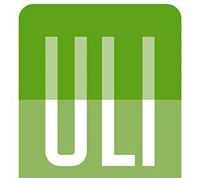Proposal Would Assist Nonprofits and Allow for Refunds of Excess Points and Fees for Qualified Mortgages
WASHINGTON, D.C. – April 30, 2014 – (RealEstateRama) — Today, the Consumer Financial Protection Bureau (CFPB) is proposing minor adjustments to its mortgage rules to ensure access to credit. The proposal includes two changes that would help certain nonprofit organizations continue to provide mortgage credit and servicing to underserved populations. The proposal also lays out limited circumstances where lenders that exceed the points and fees cap can refund the excess amount to consumers and still have the loan be considered a Qualified Mortgage.
“Our mortgage rules are now helping to protect consumers all across the country from debt traps, runarounds, and surprises,” said CFPB Director Richard Cordray. “Today’s proposal would maintain those strong protections, while making minor changes to ensure consumers have access to credit. This includes helping nonprofits that provide working families with important pathways to affordable homeownership.”
The proposed rule is available at: http://files.consumerfinance.gov/f/201404_cfpb_tila_proposed-amendments.pdf
In January 2013, the CFPB finalized several mortgage rules, most of which took effect in January 2014. Among these rules, the Ability-to-Repay rule protects consumers from irresponsible mortgage lending by requiring that lenders generally make a reasonable, good-faith determination that prospective borrowers have the ability to repay their loans. The mortgage servicing rules establish strong protections for homeowners, including those facing foreclosure.
Today’s proposed amendments respond to concerns about origination and servicing issues, particularly for nonprofit housing providers. Among the provisions in the proposed rule:
Defining nonprofit small servicers: Certain small servicers are exempt from some of the Bureau’s new mortgage servicing rules, so long as they service 5,000 or fewer mortgage loans and meet other requirements. But the Bureau has learned that some nonprofit organizations may service loans, for a fee, from other associated nonprofit lenders. Because of their unique structure, these organizations may not be able to consolidate their servicing activities and still meet the current requirements for the small servicer exemption. Accordingly, today’s proposal offers an alternative definition of a small servicer that would apply to certain 501(c)(3) nonprofit organizations so that they can continue to consolidate their servicing activities while maintaining their exemption from some of the servicing rules.
Nonprofit Ability-to-Repay exemption amendment: Certain nonprofit organizations that lend to low- and moderate-income consumers are already exempt from the Ability-to-Repay rule if the organization makes no more than 200 mortgages a year, among other limitations. Today’s proposal would carefully tailor an amendment to this provision so that certain 501(c)(3) nonprofit groups, such as Habitat for Humanity, can continue to extend certain interest-free, forgivable loans, also known as “soft seconds,” without regard to the 200-mortgage loan limit.
Refunding excess points and fees: Under the Ability-to-Repay rule, certain loans called Qualified Mortgages are subject to special consumer protections. The points and fees charged to a consumer on a Qualified Mortgage generally cannot exceed 3 percent of the loan principal. If a lender believes it has offered a Qualified Mortgage but afterwards discovers that it has exceeded the 3 percent cap, the proposal lays out limited circumstances where the excess can be refunded to still have the loan meet the legal requirements of a Qualified Mortgage. The refund must occur within 120 days after the loan is made. The creditor must also maintain and follow policies and procedures for reviewing the loans and providing refunds to consumers. Today’s proposal is designed to encourage lenders to provide access to credit to consumers seeking loans that are at or near the points and fees limit.
In addition to seeking public comment on these proposals, the CFPB is also seeking input on certain other questions relating to the impact of the Bureau’s rules, including their effect on larger lenders that do not meet the definition of small creditor. The Bureau may address these issues in future rulemakings as part of the Bureau’s ongoing efforts to ensure that the mortgage rules provide consumers with the protections they need while continuing to protect access to affordable credit.
Once the proposal is published in the Federal Register, the public will be able to comment on it at: regulations.gov.
The CFPB has been working to ensure a smooth transition to compliance with the new mortgage rules. The CFPB has coordinated with other agencies, published plain-language guides and other compliance aids, and had regular contact with industry participants, consumer advocates, legal aid attorneys, housing counselors, and others to answer their questions. The CFPB also has provided educational materials to the public about their new protections under the rules.
###
The Consumer Financial Protection Bureau is a 21st century agency that helps consumer finance markets work by making rules more effective, by consistently and fairly enforcing those rules, and by empowering consumers to take more control over their economic lives. For more information, visit consumerfinance.gov.
















